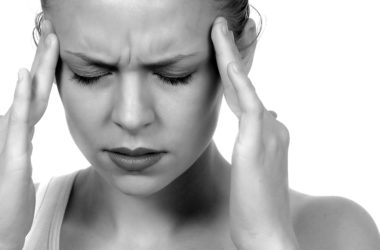When your jaw is tight, it can affect neighboring areas, too. It’s not unlikely for you to feel pain or discomfort (often described as throbbing, tender or excruciating) in your teeth, ears, temples and other parts of the face. Below you will learn about some of the common reasons behind a tight jaw.
It can be easier to identify the root cause by observing the accompanying symptoms. Do you hear of feel a clicking sound or sensation each time you open your jaw? Do your neck and shoulder muscles feel tight? Are you told that you are grinding your teeth while you are asleep?
Consulting a doctor is of course the best way to find out the reason why your jaw feels tight. Make sure that you tell him or her all of the other symptoms you are experiencing together with it.
But while you are waiting to pay your doctor a visit, keep on reading. Below are the usual causes of a tight jaw. Take note that anything in this article is not a replacement for professional advice that only your doctor can provide.
Anxiety
If your tight jaw is oftentimes accompanied by a pounding heart and, fast and shallow breathing, excessive sweating, a feeling of nervousness and other symptoms, then there is this possibility that it’s due to anxiety. An attack can cause various muscles in the body to become tight, and they include those in the jaw area.
Relaxing is a solution to a tight jaw as a result of anxiety. Definitely, it will help a lot if you pay a therapist or psychiatrist a visit to prevent complications from striking.
Stress
Aside from anxiety, another thing that can cause the muscles to tighten is stress. It can happen whether or not you are aware of it. For instance, your jaw may remain clenched while you are sleeping. When you wake up the following day, it’s not unlikely for your jaw muscles to feel tight and sore.
There is another stress-related thing that could happen to you while you are asleep or sometimes even while you are awake, and it’s the one that’s tackled next.
Teeth Grinding
Doctors refer to it as bruxism. Everyone else knows it as teeth grinding. More often than not, teeth grinding takes place while the person is asleep. According to experts, it is usually due to high levels of stress.
If you suffer from teeth grinding, it’s not just a tight jaw that you may suffer from in the morning. It’s possible for your neck and face to feel achy, too. Your pearly whites can definitely get damaged in the long run, so make sure that you pay your dentist a visit. The usual remedy for teeth grinding is the use of a mouth guard.
TMJ
Short for temporomandibular joint, TMJ is pain experienced in the lower jaw. It is commonly brought about by so many things, and they include stress, injury to the teeth, misalignment of the teeth, poor posture, teeth grinding and even chewing gum all the time. A trip to the dentist can help in diagnosing and treating TMJ.
In some cases, TMJ is something that can be remedied by some at-home care steps. However, it’s important that you consult an expert before trying any one of them.
Rheumatoid Arthritis
An autoimmune inflammatory problem, rheumatoid arthritis can affect various muscles and joints in the body. Needless to say, it’s something that can make the jaw muscles or joint achy and swollen.
Experts say that up to 80 percent of all people who are diagnosed with rheumatoid arthritis have TMJ. Paying a doctor a visit is the smartest step that you can take if you suspect that rheumatoid arthritis is what’s causing your tight jaw. Worry not because it can be controlled with medications as well as through dietary and lifestyle changes.












